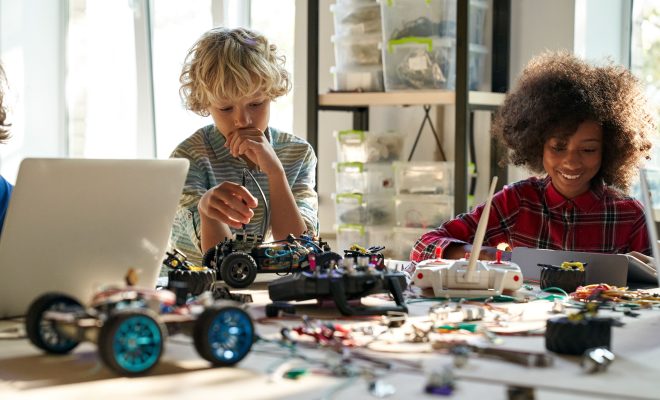Science Games for Children

Are you looking for science games for children? Check out our list.
- Static Electricity Race
This clever science game teaches children about static electricity. Start by cleaning and drying aluminum cans, marking a “start” and “finish” line, and giving each racer a balloon. The game’s object: Move your aluminum can to the finish line by using the electric charges on the balloon! Children can make the charge by rubbing the balloon on different items and holding it against the can. Learn more at That After School Life.
- Five Senses Scavenger Hunt
Not only does this game encourage children to get outside, but it also teaches them about the five senses. Brainstorm a scavenger hunt that requires the five senses. You can also print out free copies at Childhood 101, which contains things like “find something bumpy,” ”
- Body Part Bingo
Once they reach nine, children can start learning about anatomy. “Human Body Bingo” can help teach the concept. Copy these free printable bingo sheets from Darcy & Brian; they’re made with cute animated drawings of a body part. Gather playing pieces before starting the game.
- Egg Drop Experiment
Encourage your children to create a protective “case” for a hard-boiled egg. Once the egg is safely secured, they can drop it from varying heights in the hopes that the case will prevent the egg from cracking. The player with the most indestructible contraption wins the game! Your children will learn about force and momentum as they brainstorm ways to slow down the velocity, soften the landing, and relieve pressure on the egg.
- Paper Airplane Contest
Making paper airplanes is a childhood pastime. But did you know that these flying objects can teach lessons on physics and aerodynamics? Like normal airplanes, paper airplanes are beholden to gravity, lift, thrust, and drag. Introduce a “paper airplane contest” to see which of your children can create the most aerodynamic plane. They’ll learn that the flaps and folds really do matter!
- Guess My Rock
Place your observational skills to the test with this game, which teaches geology and earth science. Begin by laying out about 12 rocks you’ve foraged from your yard or a nearby park. One child can choose a rock, and the other can ask “yes or no” questions to predict which rock it is. The questions must use geological terms.




